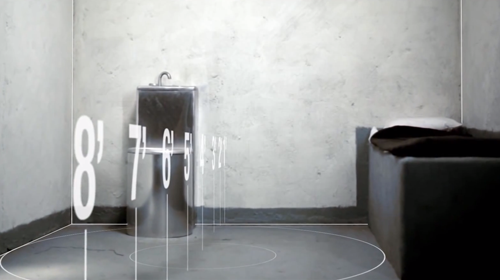
Her cell was so dirty that a sock rotted into an open wound on her foot. For , she didn't have a bed. She slept on a mat on the floor. She bled on herself, because the jail denied her sanitary napkins.
Jan Green, a 51-year-old grandmother, never even stood trial. Because of the dramatic mood swings and psychosis associated with her bipolar disorder, Green was found unfit to stand trial - which meant that she should've been hospitalized to get the intensive mental health care she needed.
The opposite happened. Quickly after her booking, someone inside the jail made a medical record saying Green should "," as she was hallucinating. Green was never treated by a psychiatrist during her time in a New Mexico jail. Instead, she was into a 7-foot-by-8-foot, where she would spend at least 22 hours a day in total isolation for long stretches of her time behind bars. Solitary confinement only made her sicker; like so many others subjected to prolonged isolation, her mental health further deteriorated.
Ms. Green might still be there, waiting for trial. But the charges against her for two minor instances of domestic violence were finally dropped, and she got to go home to her family.
Solitary's Horrifying Pervasiveness
This nauseating story, sadly, is not unique. There are now more than 200,000 women locked in jails and prisons in this country. These women are routinely subjected to solitary confinement, spending at least 22 hours a day in cells the size of a parking spot, without human interaction for days, weeks, or months at a time.
The negative psychological impacts of solitary confinement are well known. What's received less attention are the unique harms women suffer from the extended social and sensory deprivation of solitary confinement. Today, we released a new paper, Worse than Second Class, which fills this gap.
It's important to debunk the myth that solitary confinement is only used against "the worst of the worst." In fact, solitary is often used on the most vulnerable: pregnant women, individuals with mental illness, transgender women, andโshockinglyโvictims who report sexual assault by prison guards. And because guards often have discretion to impose it, solitary can be meted out for incredibly petty reasons, such as possessing "contraband," like postage stamps or banned reading material; refusing meals; or "mouthing off" at an officer or another prisoner.
Mental illness can contribute to these kinds of behavioral infractions, which means that female prisoners may be particularly susceptible to being locked in solitary. Among prisoners in federal facilities, almost fifty percent more women than men have been diagnosed with mental health conditions. And much higher numbers of women in state prisons and local jails are reported to suffer from mental health problems than similarly situated men.
Women are also at particular risk of being locked in solitary because women report past physical or sexual abuse, as well as other traumas, at a higher rate than their male counterparts. Again and again, stories arise in which women who report rape and other abuse by corrections officers are sent to solitary confinement. Women who have been sexually abused by prison guards are thus forced to face another painful dilemma: decide between reporting the attack and risking retaliation or not reporting it and risking further assault.
As the number of incarcerated women climbs at an alarming pace, women and their families and communities are increasingly affected by what happens behind bars. It is unacceptable that women like Jan Green are sent to solitary to disappear, suffering without needed medical care. It is unacceptable that a guard can retaliate against a woman for reporting a sexual assault by locking her in solitary. The time is now to address the treatment of women in prisonโespecially those women subjected to the social and sensory deprivation of solitary confinement.
Read Worse than Second-Class to learn more about the unique harms and dangers of subjecting women prisoners to solitary confinement and the reforms needed to address them.
Learn more about solitary confinement and other civil liberty issues: Sign up for breaking news alerts, , and .



